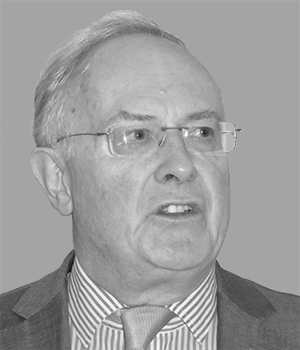Engineering and Its Future – An interview with Julian Amey

Julian Amey
Julian is Chief Executive of The Institute of Healthcare Engineering & Estate Management (IHEEM). Previously Julian was chief executive and CEO of CIBSE. He has an MA in Economics & Politics from Cambridge University.
Prior to this he worked for 2 years at the DTI, 5 years as Director General of Canning House. Then he worked for 5 years with the BBC World Service where he developed an educational TV series with Central China Television (CCTV) which introduced over 60 million viewers to basic English.
He is currently working with HEFMA and the Department of Health to support the Productivity and Efficiency Programme arising from the Carter Report published January 2016.
Following our interview with John Field, we interviewed Julian on his view of the engineering field, its future and the Royal Academy of Engineering’s latest report.
Q) How did you land in the field of engineering?
I was appointed as CEO at CIBSE largely due to my experience of publishing, working at the DTI and developing membership organisations such as Canning House, to grow its knowledge business and raise its profile. As I did not train as an engineer, I admit I was outside my comfort zone on arrival but rapidly found the world of engineering fascinating and that’s why I am now enjoying working in healthcare engineering.
Q) Do you find it more challenging than the other industries you have been in previously?
It’s challenging but invigorating… and it’s great that all the engineering professional bodies are working together to reach common goals. In the Arts world there are too many prima donnas and that can get in the way of working as a team.
Q) You are the Chief Executive of an organisation called IHEEM, what is IHEEM?
IHEEM is the leading professional engineering body in the healthcare estates sector. Although it’s a niche area, it’s a big and international niche and as a leading player in the IFHE (International Federation of Hospital Engineers) we are now working globally.
Q) What are the aims of the institute (IHEEM)?
The key aims are to qualify and support hospital engineers in developing their careers. We achieve this through working closely with the Department of Health, our industry partners and the education sector. We are also influential in ‘thought leadership’ in our sector, and through our major national and regional conferences help to shape the agenda for innovation, efficiency and carbon reduction.
Q) Moving on to a controversial subject, how will Brexit affect the healthcare engineering and estate management sector?
It’s fair to say that the majority view among the engineering professional bodies and industry partners is that Brexit complicates future development rather than enhances it. In our sector we work closely with partners around the world and the ‘global village’ will continue to function more or less well with or without Brexit. Wider political and economic factors will influence us all, but healthcare is such a huge growth sector, and I am confident it will prosper.
Q) The RAEng: ‘Engineering a future outside the EU’ report was released in October 2016 and related to Brexit. It highlights a major future skills gap in the industry. What could the industry do to prevent this?
IHEEM, together will all our fellow PEIs, The RAEng, Engineering UK and industry partners are hugely focussed on trying to provide a solution to this… but it is complex. While we are making progress in the UK in attracting more young people (male and female) into STEM subjects, market forces will require qualified people from wherever they come. My personal view is that if Brexit impedes the flow of talent from Europe, the workforce will attract people from India, Australia and other countries that produce well qualified candidates.
Q) Finally, where do you see the field of healthcare engineering heading? Will it be affected by this skills gap?
As I said earlier, the global healthcare market is growing fast and needs to attract competent people across the spectrum from apprentices to chartered engineers. My hope is that a new generation of engineers and facilities managers will be ‘home grown’ but the cynic in me says that the workforce will come from whichever country does best in educating the large number of qualified people that will be needed. It’s certainly good news for those choosing engineering as a career!


